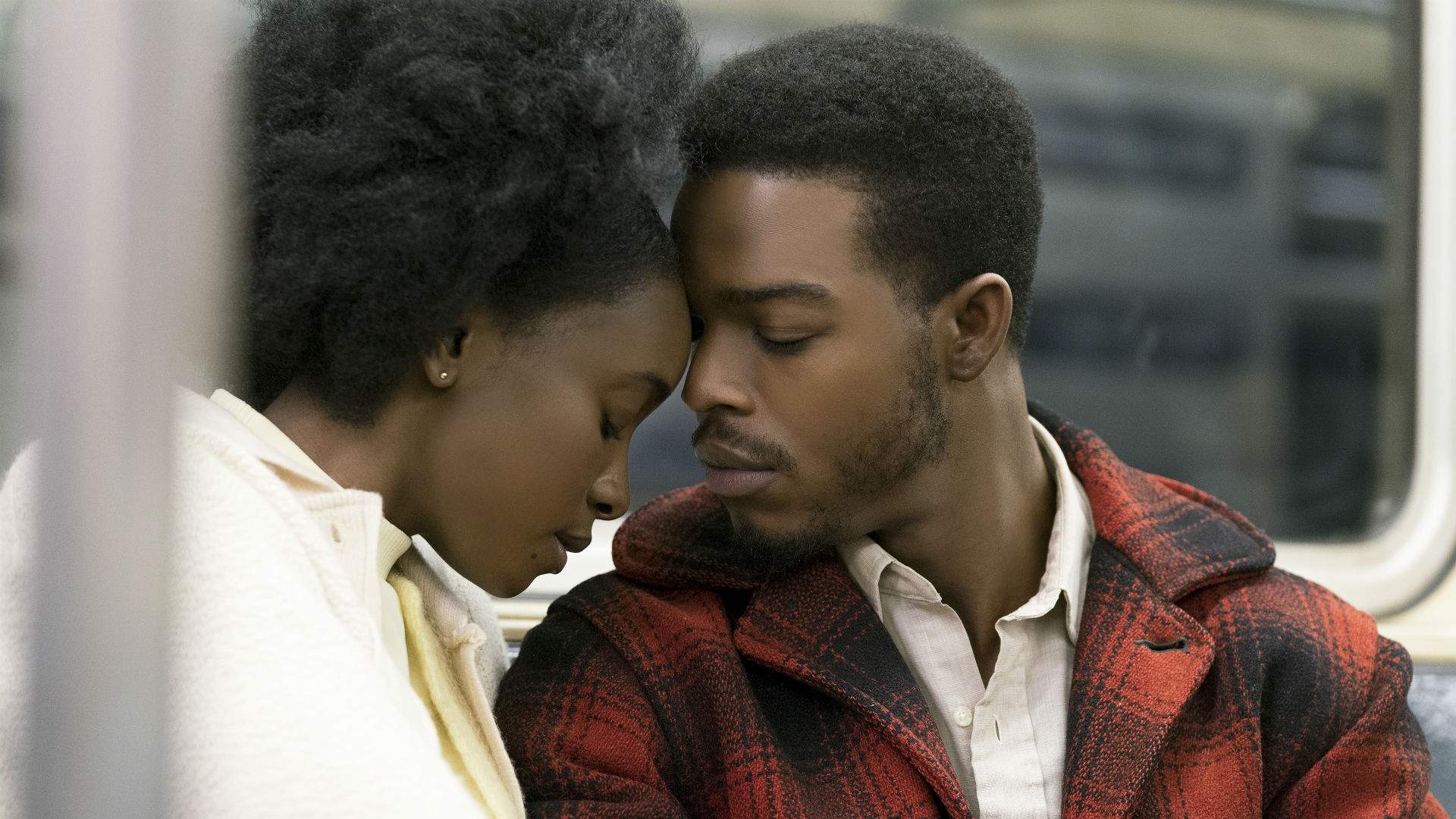If Beale Street Could Talk
Moonlight director Barry Jenkins returns with another heart-swelling, swoon-inducing drama.
Overview
UPDATE, April 30, 2021: If Beale Street Could Talk is available to stream via Binge, Foxtel Now, Google Play and YouTube Movies.

What a joy it is to rove one's eyes over Barry Jenkins' films. Not just to watch, or to take in their stories, but to truly gaze upon his images and revel in every visible detail. Cinematography has been described as painting with light, and it's a turn of phrase that wholeheartedly applies to the filmmaker's work with his regular director of photography James Laxton. But in Moonlight and now If Beale Street Could Talk, the duo don't merely splash brightness and shadow across the screen, although they do just that with exhilarating precision. Jenkins and Laxton also paint with movement, thanks to swirling frames that instantly evoke the feelings being experienced by their characters — the feeling of only having eyes for one person no matter what else is happening in the world, for example. And they paint with colour, expanding their tales through telling hues, including warm, inviting reds and moody, swoon-inducing blues.
It's fitting that colour plays such a prominent role, visually, in If Beale Street Could Talk. Adapted by Jenkins from the late James Baldwin's novel of the same name, colour plays a driving role in the film's narrative. As the exceptional documentary I Am Not Your Negro demonstrated in 2017, Baldwin was perceptive, impassioned and understandably enraged about the topic of race relations in America, a perspective that always remains apparent here. If Beale Street Could Talk is a romance, charting an unbreakable bond between childhood pals turned neighbourhood sweethearts Tish Rivers (KiKi Layne) and Alonzo 'Fonny' Hunt (Stephan James). However, as set in 1970s Harlem, it's also an account of how prejudice shapes their everyday reality. Aged 19 and 22, this deeply infatuated couple know that just getting by won't be easy. They're well aware of the disadvantages they've been born into because of their skin colour. They endure this difficult reality everyday, whether trying to find an apartment or simply stopping by the corner deli.
Then Fonny is arrested and incarcerated for a crime that he didn't commit, a development that's sadly as topical and relevant today as it was when Baldwin was penning his prose. That's not the only life-changing development within If Beale Street Could Talk, with Tish discovering that she's pregnant, then revealing the news to Fonny through the forbidding glass of a prison visitors' room. Battling to save one life while preparing to welcome another, the star-crossed pair discover how hard they'll have to fight for what's right. The conflict extends to their home turf, where his family are far from happy about adding to their number — but Tish's, especially her steely, devoted mother Sharon (Regina King), is willing to do whatever it takes to help.
Black lives devastated by discrimination, young lovers braving seemingly insurmountable obstacles: both tales have played out across countless pages and screens before, although not as they do so here. There's a bewitching alchemy to the combination of Baldwin's words and Jenkins' direction — never shying away from the despairing truth of the situation, but never wallowing in inescapable bleakness either. Indeed, If Beale Street Could Talk takes the opposite position. As its entrancing imagery and emotive score always remind viewers, this is a film of love above all else. Affection doesn't dissipate when times are tough. Kindness isn't absent from lives thwarted by institutionalised oppression. Rather, affection and intimacy are the counterforce that keeps a flicker of light glowing in marginalised eyes. If love can sustain a man faced with losing his freedom, a woman trying to remain strong as her world crumbles and a mother pushed to desperate deeds to protect her family, then it can survive anything.
In every sensory stylistic touch, Jenkins paints this revolutionary sentiment across If Beale Street Could Talk's frames. Make no mistake, finding such delight and beauty amidst such struggle is revolutionary. So is recognising that these characters' stories, and the characters themselves, are rich, detailed and worthy of being treated and seen in such a tender way. Jenkins tells tales and peers at people with empathy that's palpable, intoxicating and infectious. Thanks to his winning way with actors, he also has considerable assistance. From King's rightfully awarded efforts, to Colman Domingo's caring turn as Tish's father, to Dave Franco's brief appearance as a generous landlord, there are no weak links here.
Still, it should come as no surprise that Layne and James earn the camera's adoration. More than that, they demand it. Together, they make a shared glance seem like the most important moment in the world, whether it's exchanged beneath autumn trees or directed through physical barriers. What a joy it is to witness their exquisite performances and natural chemistry, all while their protagonists weather both infuriating trials and quiet triumphs. And, what a joy it is to watch them in this — Jenkins' heart-swelling, insightful and yet almost dream-like piece of cinematic perfection.






